Residential Addiction Treatment Center in New Jersey
Are you or someone you love interested in learning more about inpatient treatment for addiction and mental health? Learn more about our residential addiction treatment center in New Jersey, and how Discovery Institute can help guide you to recovery.
My experience was amazing, and I cannot thank everyone there enough. You will all forever be part of my life for helping me get my life together.
Eric M.
If your looking for a place to get help and get the attention you need Discovery is the place to go, Discovery changed my life.
Ramon D.
Very nice facility, great staff, and well-kept program. All your needs will be accommodated, and the hospitality is superb. Highly recommend this program to anyone in need of a new start.
Koby C.
If you want to get sober and get your life and dignity back, walk through the doors at Discovery.
Manny G.
Met good supportive peers and staff great place for recovery and new way of living.
John W.
Factors like insurance coverage, amenities, and programs offered can make some residential treatment facilities a match for some and a dealbreaker for others. The answer to what makes a facility one of the best inpatient treatment centers in NJ isn’t straightforward. It’s different for everyone.
Those searching for inpatient residential treatment might not know where to start. If so, we know it’s easy to get overwhelmed with all the options. Plus, it’s already difficult enough to find the drive to get help when struggling with an alcohol or substance use disorder. We’ve put together information about New Jersey residential addiction treatment programs to make the process a bit easier.
The Discovery Difference
At Discovery Institute’s residential treatment center for substance abuse in Marlboro, New Jersey, you can expect to receive a consistent and comfortable level of care. Our dedicated team of experienced and compassionate professionals will be there for you around the clock. By staying with us, you will become a part of a small community of like-minded individuals who are facing similar challenges and share the common objective of achieving long-term health and sobriety.
Unlike other residential addiction treatment centers in New Jersey, Discovery Institute ensures that there are no more than nine clients in residence at any given time. This creates a close-knit and supportive sober living environment that is unparalleled. Within this upscale setting, we can foster trust and establish genuine connections with our clients, enabling us to effectively work towards their realistic goals for substance abuse treatment and recovery.

The Prevalence of Addiction in New Jersey: Examining the Statistics
Drugs and alcohol continue to present a significant danger to the well-being of the general public, resulting in a substantial burden of illness and notable social and economic consequences. The harmful consumption of drugs and alcohol is responsible for the majority of preventable deaths worldwide and substance misuse has also been associated with the emergence of various behavioral and mental disorders.
Based on research conducted by America’s Health Rankings of the United Health Foundation, New Jersey is ranked 14th among the states in the United States in terms of binge drinking, with a rate of 15.9%. This figure represents the proportion of adults who reported engaging in binge drinking, defined as consuming four or more drinks for females or five or more drinks for males on a single occasion within the past 30 days, or heavy drinking, which involves consuming eight or more drinks for females or 15 or more drinks for males per week.
Alcohol use disorder (AUD) remains a significant concern for public health, as it poses risks to both physical and mental well-being, while also imposing substantial social and economic burdens. In the United States alone, alcohol addiction is responsible for more than 85,000 deaths annually, with New Jersey witnessing over 1,500 fatalities each year.
Despite the seriousness of these statistics, the availability of treatment is not evenly distributed among different population groups. Therefore, it is crucial to identify the factors contributing to this disparity, particularly within specific populations like New Jersey, to effectively implement targeted interventions.
At Discovery Institute in Marlboro, New Jersey, our team of highly qualified addiction specialists offers a range of services and resources, including medical detox, to adequately prepare our clients for treatment and effectively address their individual needs.
The most commonly abused narcotics in New Jersey are heroin and other forms of opiates. Some call the rise of opioids an epidemic. The problem with opioids is much deeper and much less black and white than many think. New Jersey is seeing a rise in substance abuse, and the gap needs to be bridged between people needing help and those who receive it.
CONTACT US
Find out how we can help
Our compassionate counselors are standing by to answer any questions you may have. After helping thousands of people over the last 50 years, we have the resources to help you and your family and all your individual needs.
First Step To Recovery: The Detox Process
The process of recovering from addiction commences with medical detox, also referred to as medication-assisted treatment (MAT). In this initial stage, the body eliminates the substances it has become dependent on over time. Self-detoxification is strongly discouraged due to the unpleasant withdrawal symptoms that may arise from drug addiction. Thankfully, our highly skilled medical detox experts possess extensive expertise in managing withdrawal symptoms and intense cravings. Our primary objective is to guarantee that the detoxification process is as effortless, secure, and comfortable as it can be. Following detox, individuals can proceed with inpatient treatment.
What is an Inpatient Rehab Center?
Residential rehab or inpatient treatment for drugs and alcohol provides 24/7 support and therapy for individuals struggling with a substance use disorder. Those who go through a residential drug program at Discovery Institute will live at an inpatient drug rehab in NJ (specifically Marlboro) during the duration of their treatment.
While each case of substance use disorder is severe in its own right, certain cases are more severe than others. In less severe cases, outpatient treatment suffices in providing coverage to those being treated at their own homes. However, there are individuals whose addiction is so severe that they need more support and structure.
A residential addiction treatment program provides an opportunity for people to live in a treatment facility for some time, almost like a hospital. While there, individuals will not only have constant support from medical staff from their peers as well. This helps to ensure that all of their needs are met. There are numerous benefits to this type of inpatient program for drugs and alcohol.
What to Expect At Our Residential Addiction Treatment Center
Residential treatment is a structured care program that typically spans from 28 to 90 days. During this time, you will reside at our facility and receive continuous behavioral healthcare from our skilled staff. In addition to individual therapy, group therapy, and various counseling sessions, you will also have the opportunity to engage in holistic treatment options.
At Discovery Institute, we firmly believe that substance abuse therapy should extend beyond the confines of traditional therapy settings to enhance an individual’s recovery for both their mind and body. Our wilderness programs, like the one we offer, aim to heal the physical and spiritual aspects of substance abuse. Located in Marlboro, NJ, our residential treatment center offers a unique approach to recovery that will invigorate your senses and reignite your passion for life!
When a client enrolls in our inpatient program, they commit to residing on campus 24/7 for approximately 30 days. The duration of their stay may vary depending on the pace of their progress and the specific challenges they face. Throughout their time with us, our dedicated staff will develop a personalized treatment plan tailored to their individual needs. We have intentionally created a secure environment that eliminates the distractions of everyday life, allowing clients to focus solely on themselves. We have witnessed firsthand that a one-size-fits-all approach is ineffective when it comes to addressing substance abuse. Each patient has unique treatment goals, whether it involves learning how to manage mental illness or repairing and nurturing healthy relationships with loved ones.
To ensure that each client’s treatment is effective and meets them where they are, we make a concerted effort to understand their objectives. Clients will engage in various therapeutic modalities, working closely with our team members to gain insight and overcome the challenges and pressures of life. To facilitate lasting changes, we consistently provide compassion and support, both from our therapists and fellow residents. It is crucial to recognize and embrace the fact that you will not be embarking on this recovery journey alone.
Benefits of Residential Rehab
The benefits of a residential treatment program are vast. They include the following:
- Live in drug and alcohol-free surroundings
- Time to focus on yourself and your needs
- Removes someone from negative influences
- Be around people who understand your circumstances
- Receive professional help from trained professionals
- Support and accountability
- Live a life with routine and structure
- Have support after treatment (Continuum of care)
Enrolling in a residential program allows individuals to detach themselves from their various responsibilities and concentrate solely on their well-being. This invaluable opportunity enables individuals to address the challenges they have encountered in their lives. By dedicating this time to focus on their addiction recovery and overall life, individuals will acquire the necessary skills and resources to effectively manage any future obstacles.
Our residential rehabilitation program has been meticulously crafted to offer individuals with substance use disorders, mental health conditions, or both, a comprehensive and personalized approach to care. The amenities provided are specifically tailored to support the mental and physical well-being of our clients.
- Medical detox
- Medication-assisted treatment
- Individual and group therapy
- Family and couples counseling
- Holistic therapy
- Life skills for overcoming a substance use disorder post-treatment
Comprehensive, Individualized Care and Counseling in a First-Class Environment
Our substance abuse treatment center is meticulously crafted to provide a comprehensive, intimate, and highly personalized experience. The range of amenities available is specifically tailored to nurture the mental and physical well-being of our clients. Consequently, our residential program primarily focuses on holistic and evidence-based treatments, carefully selected to ensure the utmost effectiveness.
Programs Offered At Our Residential Rehab Center
While every facility that offers addiction treatment services is different, most offer the same types of services. It’s because they are evidence-based and proven to be the most effective treatment for those suffering from an addiction. We provide the following programs for drug and alcohol abuse:
The first step in most treatment centers is to undergo medical detox. This is the point at which all the chemicals, toxins, and leftover substances are flushed from an individual’s body. This step in the process can seem scary to many people because of the possibility of severe withdrawal symptoms.
Addictive substances change the brain, making those with a substance use disorder dependent upon them. So, when a person stops consuming the substances, he or she may experience mild to intense withdrawal symptoms. They can manifest in the form of:
- Hallucinations
- Itching
- Discomfort
- Nausea
- Vomiting
- Anxiety
- Depression
While those above are common withdrawal symptoms, at times they can be fatal. This is why it’s so important to seek medical detox within the confines of inpatient care for drugs and alcohol. We at the Discovery Institute will be able to provide you with 24/7 medical care. We may be able to prescribe you helpful medicine to cope with withdrawal.
Many individuals attempt to go cold turkey, detoxing on their own. However, this is not only more likely to result in a relapse, but it can be extremely dangerous. Medical detox can help with co-occurring disorders. Again, sometimes members need medication-assisted treatment during detox to help with symptoms of mental illness. The team at Discovery Institute strives to make medical detox as comfortable as possible.
Medication-assisted treatment (MAT) is a type of detoxification that utilizes medications and counseling to help individuals overcome their addictions. The types of medication one may be prescribed will depend on various factors, including the type of substance use disorder they have. Commonly prescribed medications during medication-assisted treatment include:
Alcohol Medication Assisted Treatment
- Acamprosate
- Disulfiram
- Naltrexone
Opioid Medication-Assisted Treatment
- Buprenorphine
- Methadone
- Naltrexone
Opioid Overdose Medication Assisted Treatment
- Naloxone
Medication-assisted treatment is crucial for some. Without it, they may have adverse effects after their last dose. A doctor will prescribe members medications based on their needs and substance use disorders.
Cognitive-behavioral therapy (CBT) is a therapeutic approach that combines cognitive therapy and behavior therapy. It aims to identify and replace maladaptive patterns of thinking, emotional responses, or behaviors with more desirable ones. CBT encompasses a variety of techniques and methods that target our thoughts, emotions, and behaviors, ranging from structured psychotherapies to self-help practices. The primary focus of CBT is to modify automatic negative thoughts that contribute to and exacerbate emotional difficulties, depression, and anxiety. These spontaneous negative thoughts also have a detrimental impact on our mood.
Through CBT, faulty thoughts are recognized, challenged, and substituted with more objective and realistic thoughts. Although different types of cognitive behavioral therapy may employ distinct approaches, they all aim to address the underlying thought patterns that contribute to psychological distress. A therapist will help you become more aware of unhelpful or unrealistic thoughts and beliefs. Subsequently, strategies are implemented to assist you or your loved one in developing healthier thoughts and behavior patterns.
While individual therapy is usually performed in some capacity in most treatments, it is also offered in inpatient residential care. This is very beneficial for anyone who is going through the recovery process.
Residential inpatient care for drugs and alcohol is a great place to pursue individual and group approaches to therapy. There are many different types of individual and group therapies that individuals can benefit from.
One type is cognitive-behavioral therapy (CBT). In CBT, the goal is to trace thought processes and identify any harmful coping mechanisms. Once that happens, the goal is to change thought processes into healthier coping methods.
Family therapy helps provide support and teaches the family how to identify distinct behaviors and how they are affecting the rest of the family. The overall goal of this form of therapy is to help rebuild the foundation of the family and teach them how to communicate effectively with each other. Family therapy is an important tool at any residential treatment center.
The accountability that family or couples counseling provides is extremely helpful. When individuals are going through counseling together, supporting one another, it is much more difficult to relapse. When loved ones are with those struggling with addiction in therapy sessions, they can develop healthy assisting recovery.
Many now consider addiction to be a family disease. This is because people are never isolated when they deal with an alcohol or drug addiction. When individuals struggle with an alcohol or drug addiction, many don’t know how to help since it is so stigmatized. This can make individuals feel guilty, ashamed, and afraid. They may also experience many other debilitating effects on their mental health.
Along with this, if people are not properly treated, their families may develop poor coping mechanisms. This is why many consider family treatment to be an important part of the recovery process.
Residential Mental Health Treatment
The initial phase of residential treatment is crucial for enhancing your mental well-being. Its primary objective is to assist in stabilizing individuals who are grappling with mental health disorders. Numerous individuals, both men and women, find themselves in a state of shock, confusion, pain, and despair. Some resort to substance use as a means to alleviate their symptoms, while others face life-threatening complications. Our mental health residential care aims to establish a secure and supportive environment as the foremost priority.
Residential treatment for mental health, also referred to as inpatient or residential care, is a comprehensive and structured therapeutic program designed to aid individuals with severe mental health conditions. During treatment, patients will receive intensive care from a multidisciplinary team of mental health experts, around the clock. Individuals residing in our mental health residential facility will participate in various therapeutic interventions.
The aim is to establish a therapeutic environment that caters to the intricate needs of individuals dealing with acute mental health issues, providing them with a high level of structure, supervision, and support. Residential treatment allows patients to remove themselves from the pressures of everyday life and focus on their mental well-being, while also learning effective coping mechanisms, within a safe and therapeutic setting. The duration of residential treatment varies based on the individual’s needs and progress. It offers a secure and stable environment where individuals can recover from long-term challenges, receive intensive therapy, and develop a personalized treatment plan.
Dual Diagnosis Treatment at Discovery
Our commitment to providing comprehensive and compassionate care for individuals with acute mental health issues is exemplified through our residential treatment programs. These programs serve as a sanctuary for therapeutic purposes, allowing participants to temporarily reside in a structured and nurturing environment, surrounded by a dedicated team of professionals.
At Discovery Institute, we place great importance on tailoring our care to meet the unique needs of each individual, recognizing that the journey to mental wellness is different for everyone. Our residential mental health care incorporates a range of evidence-based therapy services, including both group and individual counseling, psychiatric assessments, and medication management when necessary. Our team is fully dedicated to creating a safe and supportive environment, free from the pressures and distractions of everyday life, to facilitate the healing process. Our residential rehab for mental health treats the following conditions:
- Anxiety Disorders
- Bipolar Disorder
- Depression
- Obsessive-Compulsive Disorder (OCD)
- Schizophrenia
- Drug/Alcohol-Induced Psychosis
- Post-Traumatic Stress Disorder (PTSD)
Our residential mental health programs are structured to run for a minimum of 6 to 8 hours per day, spanning 5 to 6 days each week. Patients receiving treatment at our mental health facilities in New Jersey are provided with round-the-clock care and supervision, with a team of doctors, nurses, therapists, and mental health technicians available to assist them. The duration of their stay is dependent on the progress made by the patient, ensuring that they have ample time and support to develop coping strategies and establish long-term mental health plans.
Recognizing the importance of addressing the root causes of mental health conditions alongside their symptoms, our clients undergo a comprehensive clinical assessment initially. This aids in accurately diagnosing mental health disorders and evaluating medications to ensure that they are appropriately stabilized before transitioning to a less intensive level of care.
In cases where a patient requires medically supervised detox due to substance abuse issues, they will move into residential care following the completion of detox. Throughout their treatment, clients undergo regular psychiatric assessments, engage in group and individual therapy sessions, and have the opportunity to partake in a range of complementary and holistic treatments.
Perhaps one of the most indispensable parts of a residential treatment center occurs once a person leaves. The tools that people receive before and as people leave treatment are extremely helpful.
In treatment, individuals can learn how to avoid or be aware of their triggers. Triggers are the instances that occur which might tempt people to stray from their long-term goals of recovery. It can be friends who used to party with them. For some, triggers are places. Or, it might be negative feelings of shame, depression, isolation, and anxiety.
Knowing how to manage these triggers is one of the most important parts of abstaining from drugs and alcohol. Luckily, at the Discovery Institute, relapse prevention is one of the programs we offer.
Those in recovery need a group of people who will follow up with each other and hold one another accountable. They need to surround themselves with people who know and understand their deepest struggles. This helps people to see that they are far from alone while they encounter various challenges and victories along the road to recovery.
One of the greatest yet most challenging things about recovery is that it is a lifelong journey. Addiction is a chronic disease, so relapse is not uncommon. However, this means that a person’s support system and relationships should be stronger than mere acquaintances. Thankfully, residential programs allow people to develop these relationships.
Residential Rehab Center FAQs
Some individuals struggling with a substance use disorder may crave the structure that general inpatient care provides. Residents in the tri-state area with severe addictions, especially in cases where they have relapsed multiple times after prior addiction treatment, should opt for a true inpatient drug rehab in NJ. Then take a step down into a residential drug treatment program.
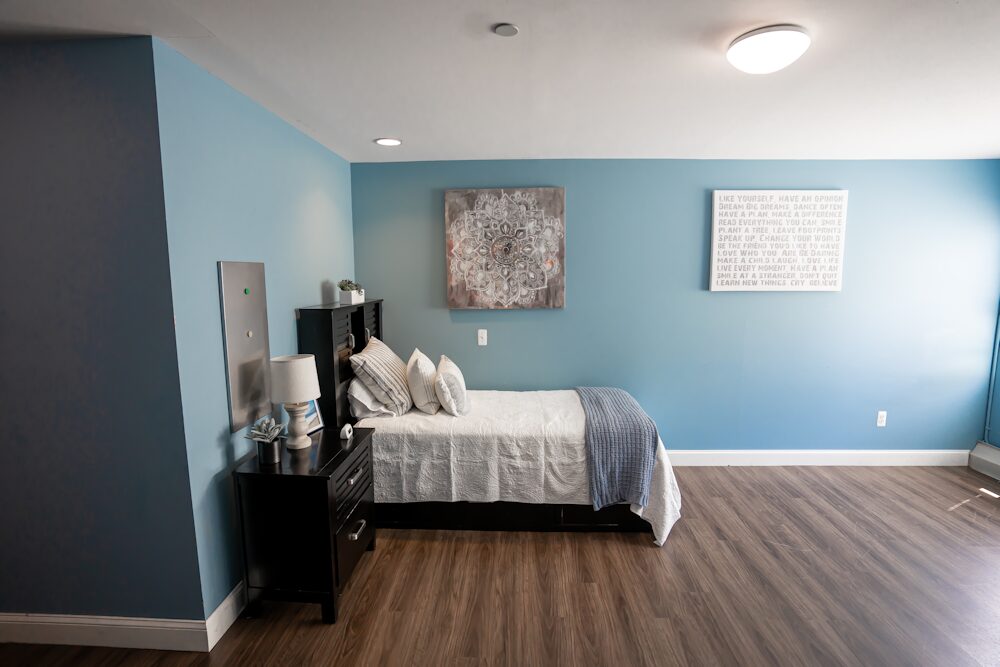
Essentially, inpatient treatment refers to someone being admitted to the treatment center and staying for an extended time. Outpatient treatment refers to someone attending therapy and other forms of treatment during the day, or in the evening, but residing at home.
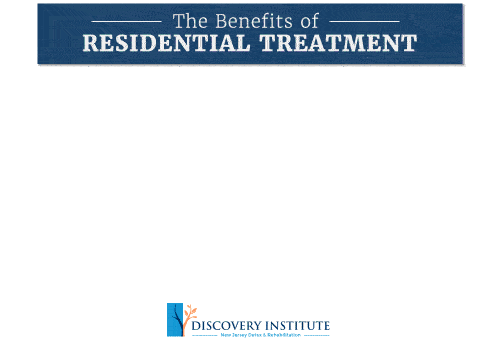
Inpatient treatment is considered to be the best form of care as it offers 24/7 support for anyone in the program. It’s highly recommended for those struggling with a severe addiction or co-occurring disorder. Outpatient treatment is recommended for those individuals who have family or work obligations that require them to stay at home.
Several forms of treatment provide a bit more support than standard outpatient treatment. These include a partial hospitalization program and an intensive outpatient program. To find out which one will work best for you, it’s important to research the benefits of each. You should also be speaking with an addiction treatment specialist to help guide you to your optimal recovery center.
According to one study, inpatient mental health programs typically last up to 10 days. However, in New Jersey, they may last 30-48 days if it’s court-ordered or involuntary. Mental health conditions that co-occur with addiction need to be evaluated by an addiction treatment specialist to give an accurate timeline. Everyone’s treatment plan should be unique and customized.
A co-occurring disorder is when someone suffers from two or more disorders at the same time. This includes a substance use disorder along with a mental health disorder, which is very common. Those with a substance use disorder are 50% more likely to suffer from a mental health disorder.
An inpatient drug and alcohol addiction rehab in NJ usually runs for increments of 30 days, 60 days, and 90 days. However, some people suffering from drug and alcohol addiction may stay in a program for drug and alcohol treatment for anywhere from half a year to a full year.
That said, residential inpatient treatment is more open and flexible. Typically residents participating in these kinds of treatment services will stay for longer periods and may extend it if they don’t feel ready to lose the constant support it provides.
Yes, a New Jersey residential drug program serves people from all different states. At Discovery Institute we undeniably have many members from New Jersey. However, we also have individuals from New York since it’s part of the tri-state area. People in need of addiction treatment services come to us from all across the United States. Some insurance plans cover out-of-state addiction treatment, which gives individuals more treatment programs to choose from.
Medicaid can pay for residential care for substance use disorders. However, not every inpatient drug rehab in NJ accepts Medicaid. Medicaid is a federal program that provides affordable healthcare services to those with low incomes. The United States government recognizes that drug and alcohol addictions are serious medical issues, not a lack of willpower or morals.
The answer may be yes or no depending on the type of insurance policy a person has. People with higher tiers of insurance may get more coverage for programs that offer inpatient residential care. Also, it makes a difference whether or not one’s insurance is in-network with the long-term addiction treatment services facility. It’s always best to get in contact with the addiction treatment facility to have them verify insurance. Discovery Institute in New Jersey works with several insurance providers including.
We will navigate your insurance benefits and explore the available options to find the best path for your treatment.
We will navigate your insurance benefits and explore the available options to find the best path for your treatment.
Promoting Long-Term Recovery At Our Residential Rehab Center
We at the Discovery Institute want you to know you are not alone. We are here for you and want to help you take the first step in the journey of recovery. Discovery Institute is one of the top residential treatment centers in NJ because of our evidence-based treatments paired with our compassionate team.
If you or someone you know is struggling with addiction, let us help. Recovery can begin with something as simple as a phone call. We are available with a specialist at all hours of the day. It may seem difficult, but we will be with you every step of the way. Contact us today to begin the journey to the life you deserve!
Our Facility
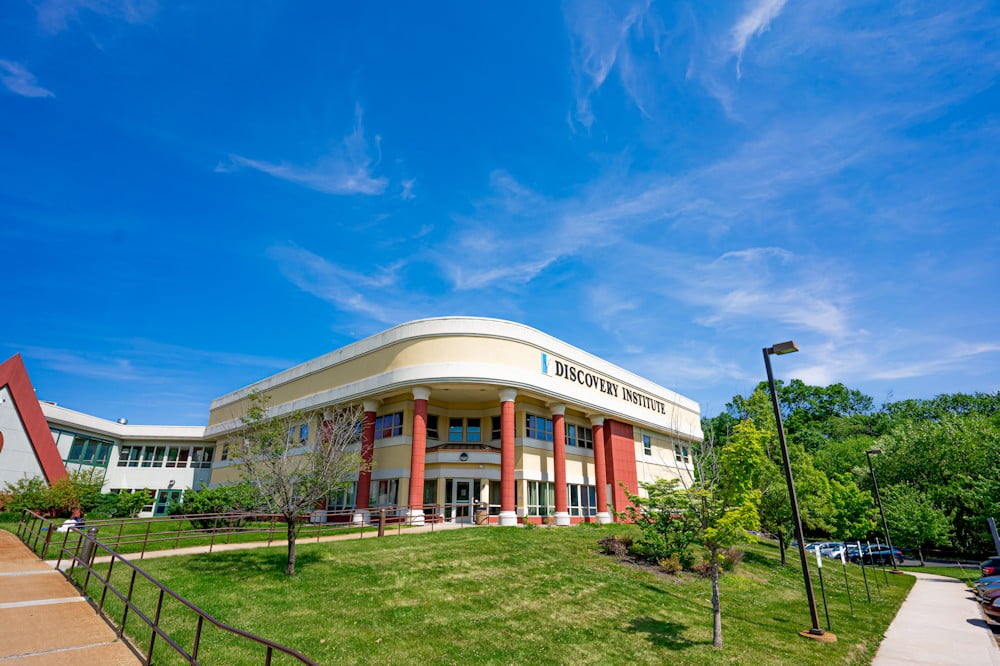
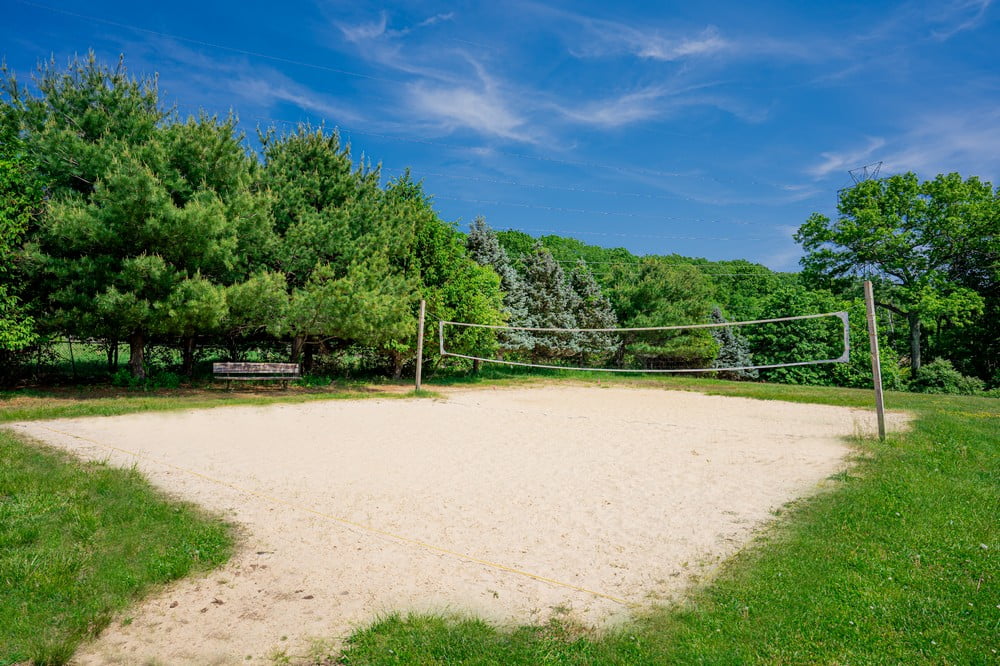
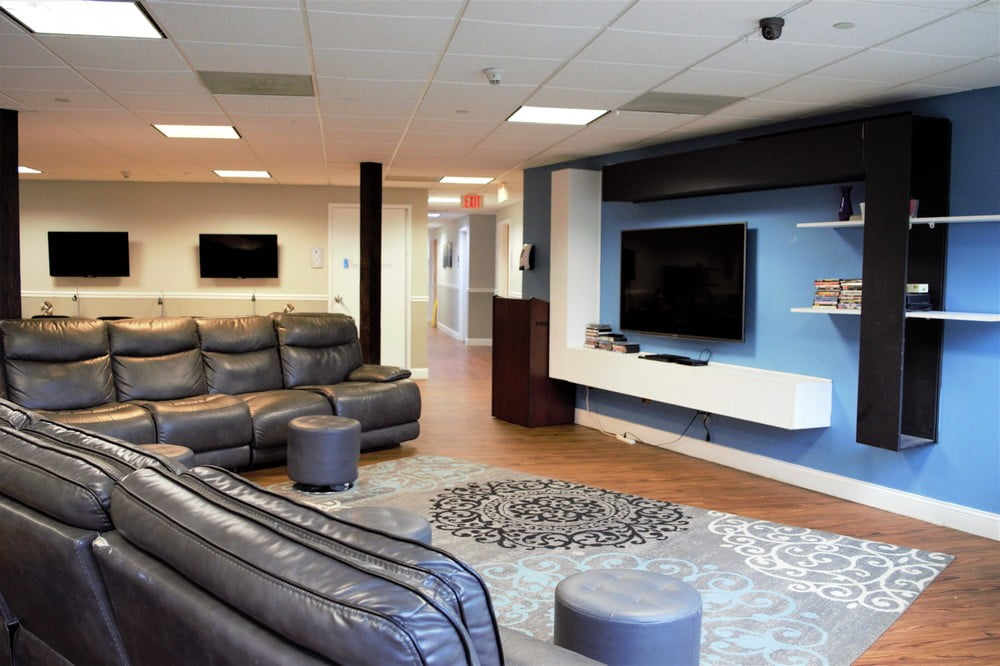
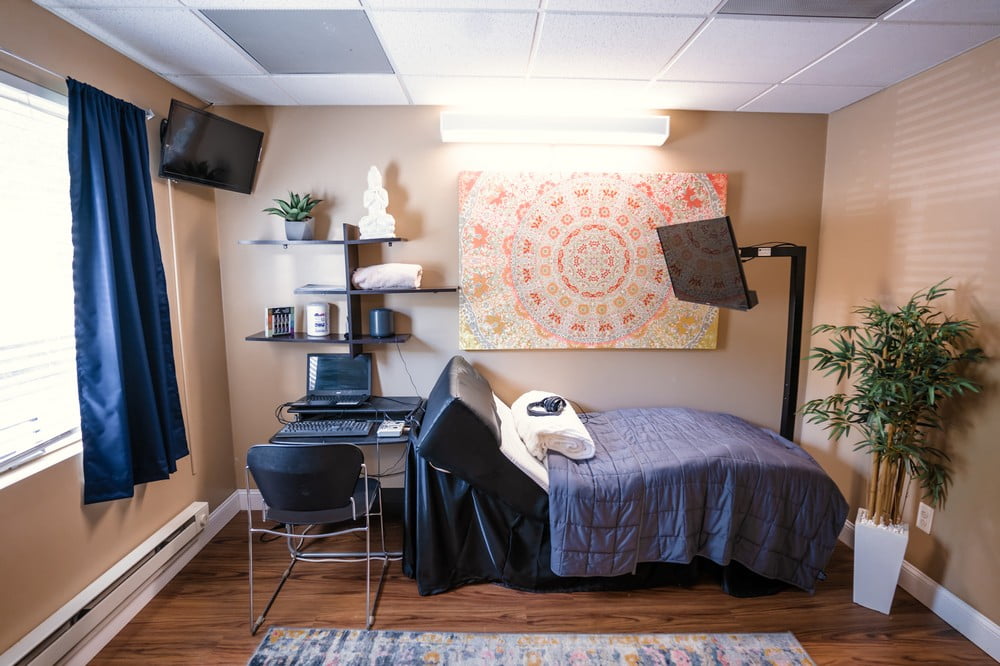
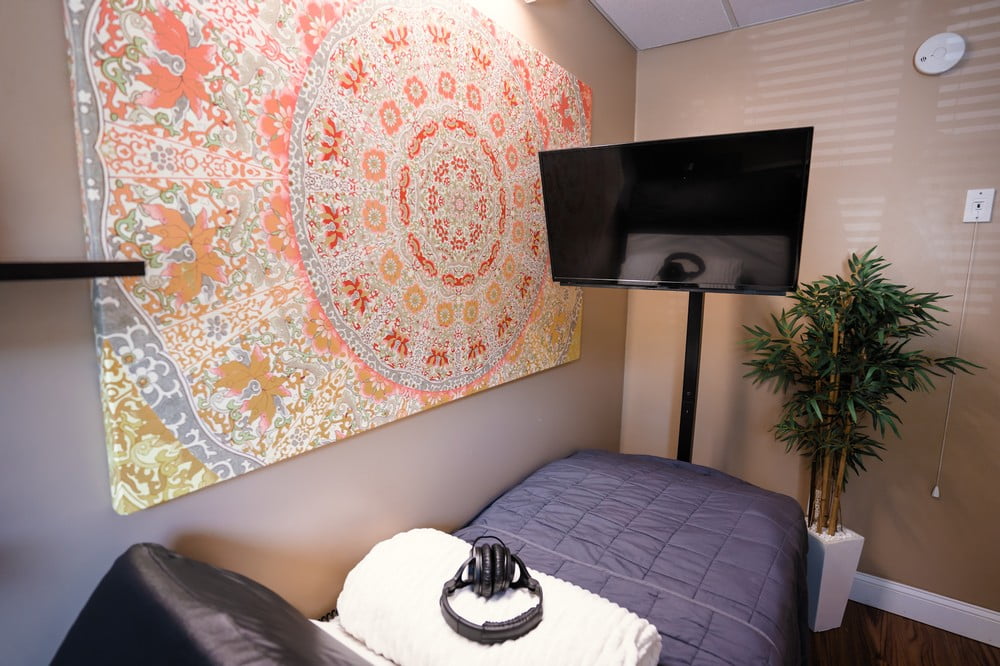
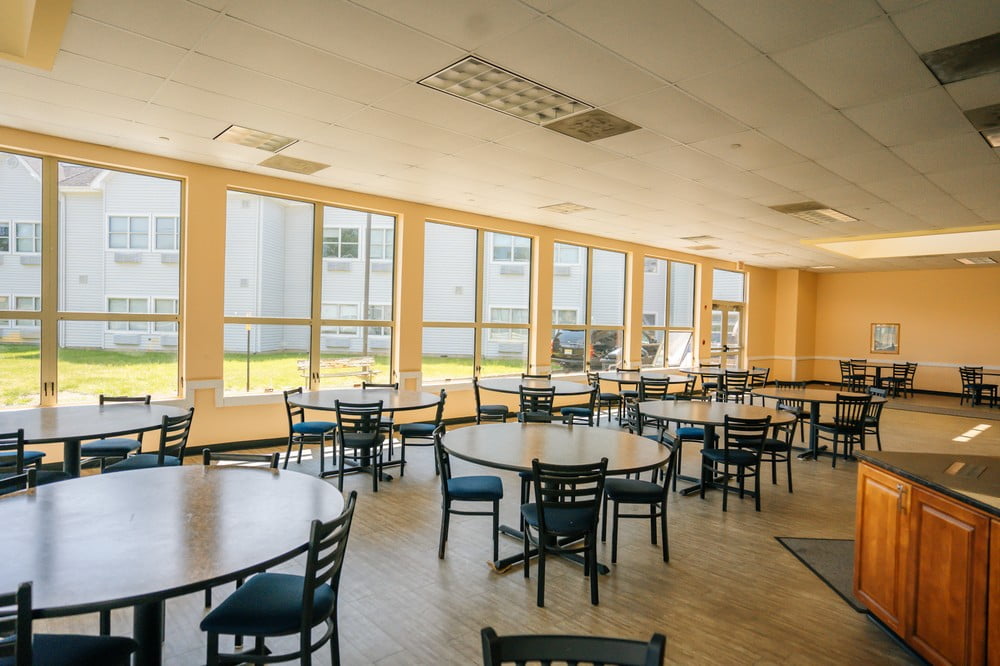
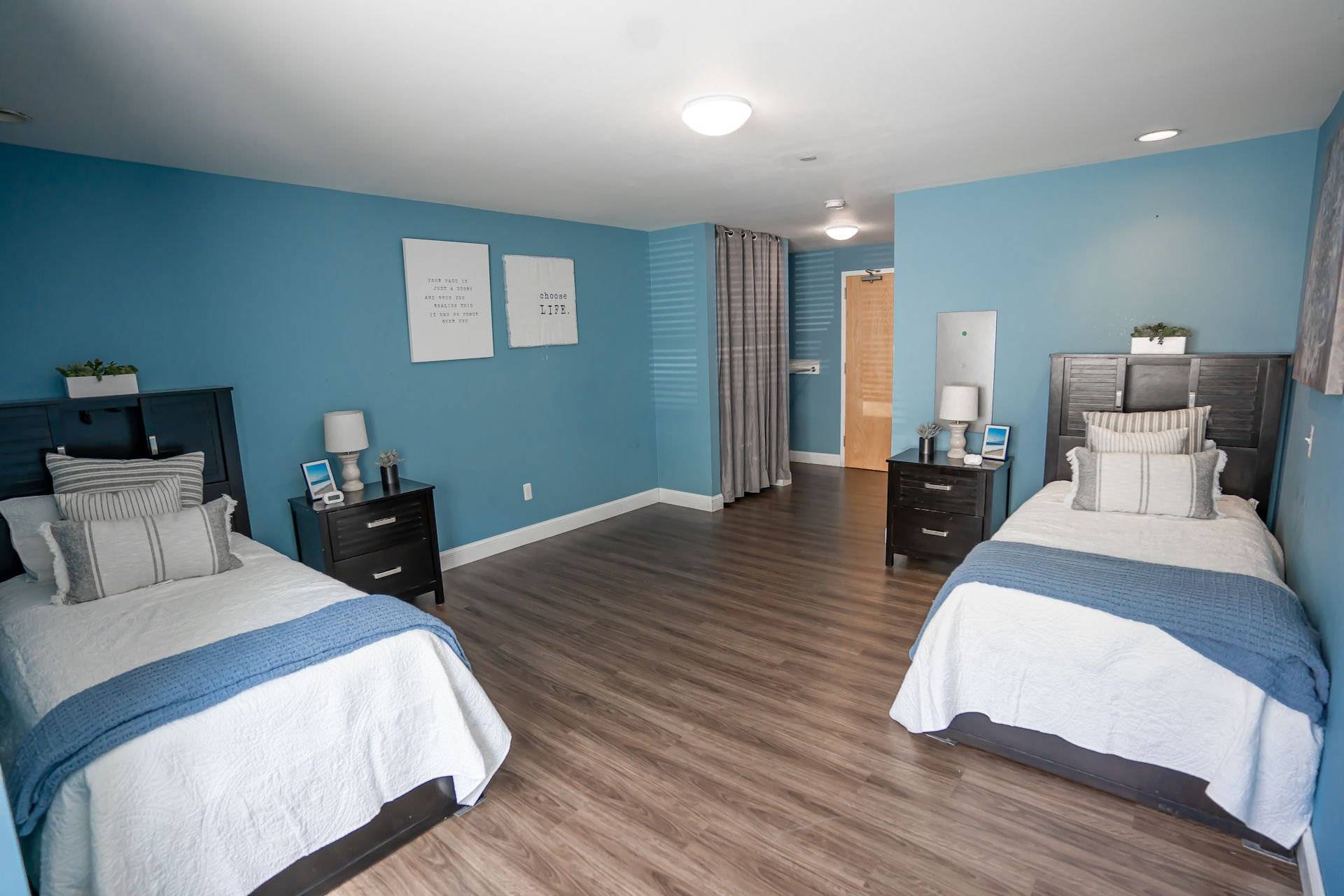
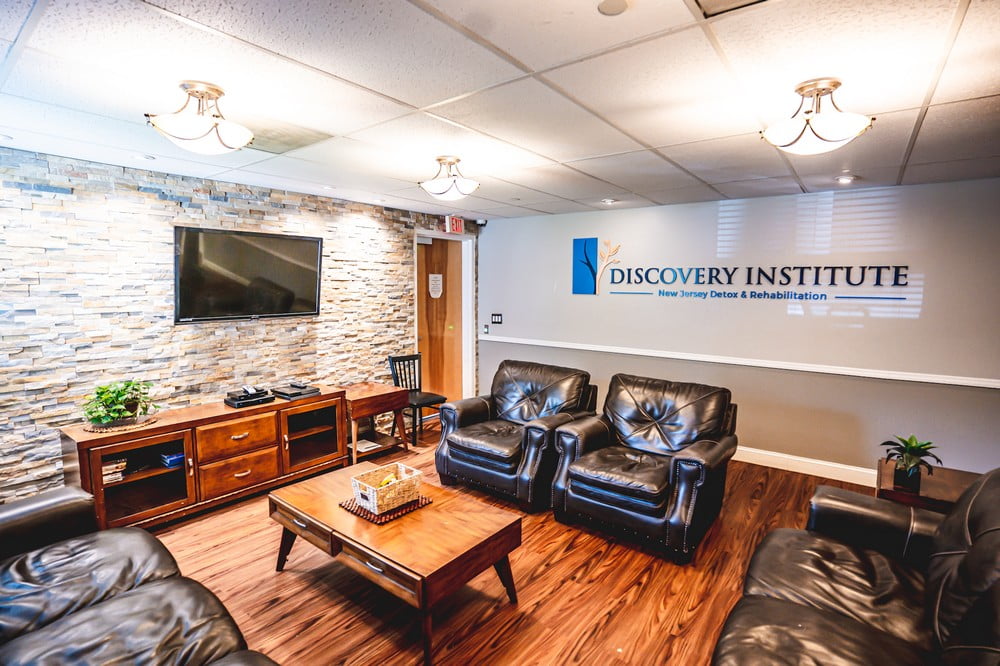
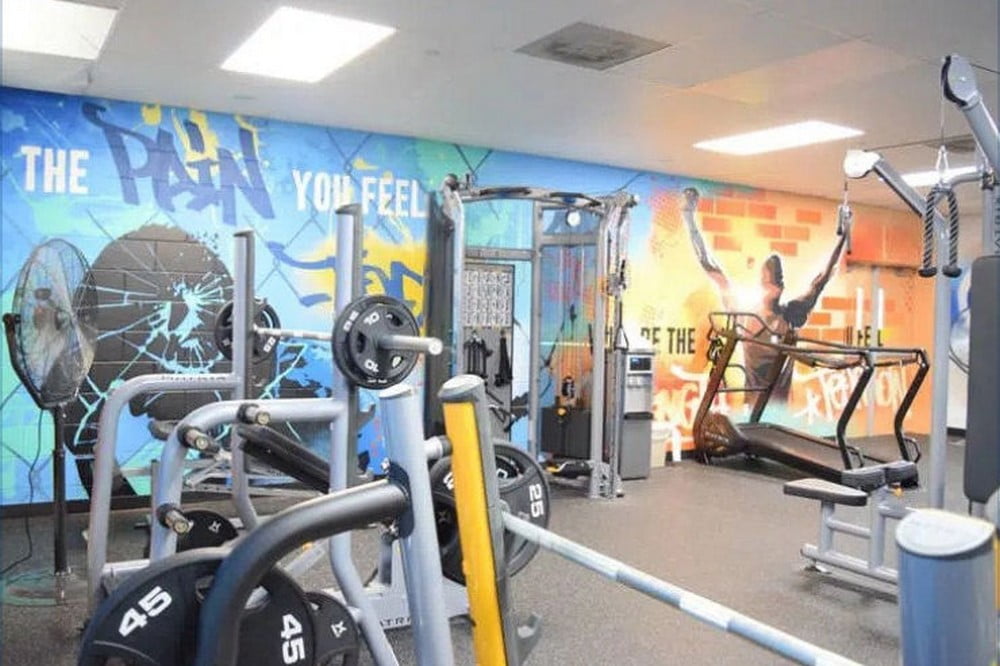
Dr. Joseph Ranieri D.O. earned his BS in Pharmacy at Temple University School of Pharmacy in 1981 and His Doctorate Degree in Osteopathic Medicine at the Philadelphia College of Osteopathic Medicine in 1991. He is Board Certified by the American Board of Family Medicine and a Diplomate of the American Board of Preventive Medicine Addiction Certification. Dr. Ranieri has lectured extensively to physicians, nurses, counselors and laypeople about the Disease of Addiction throughout New Jersey and Pennsylvania since 2012.



